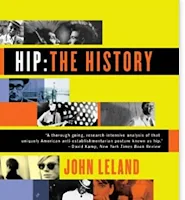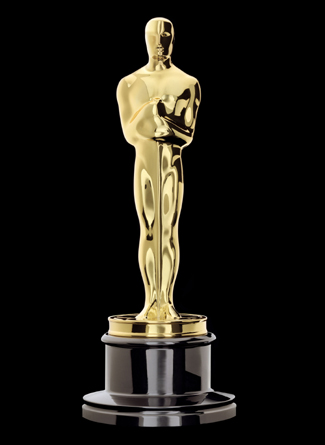Greil Marcus is obsessed with secret histories as manifested in inchoate habits seeking to amuse and distract themselves. His decades-worth of rants, ruminations, and reiterations wherein he tried to wed his foremost concern with rock and roll as an inevitable countercultural force that galvanized various energies that would, finally, transform the world in the same Hegelian way with the larger aims of politics and social theory, we are met with decidedly mixed results; lots of insight, extended bits of associative brilliance that only a word-drunk can manage, but a thesis, as an oral examination of what is happening in our world typified by art, music, demonstrations, technological upheaval, the excellent author falls short. Lipstick Traces, of all his work, is the best example of what he does. I would recommend it to the reader who is interested in reading the poetic extrapolations of a writer who thinks that he's found something significant in the rock and pop album he bought --things as substantial as the books he read in college--who cannot, or will not, stop microscopically examining the examples he brings up and construct a theory on which his metaphors can rest. Marcus seems to assume that the idea is implicit in the instances he pulls from the dustbin, but he makes the mistake of forgetting that he is supposed to be writing criticism, not poetry. Implicit is the idea that there are discrete but discoverable bits of spontaneous resistance in the arts to the dominant ideologies that control the money, the armies and navies, the cops, that are leading civilization to blind-sided destruction; that it is human nature to reinvent the world informs and concept that attempts to break an enforced world view. Marcus links Cabaret Voltaire, Dada, Rock and Roll, French Cinema, and, of course, Situation-ism into this scheme, but he never makes his case convincing beyond the apparent need for him to believe it himself. It seems a beautifully rendered bit of what might have been.
What we have with Hip is what Greil Marcus has been attempting to do for decades, which is write a coherent narrative of the margins of American culture, descendants of slaves and the children of immigrant parents, coalesced in ways in which each other's style and manner intermingled even if the respective races did not. The grace moment in history is that some beautiful things emerged from all this borrowing, posturing, and tension, the jazz, rock and roll, and a genuine American literary vernacular; the tragedy is that it took generations of racism and violence to produce the historical conditions for these vital arts to emerge. The question of Hip furnishes the theme that brings Leland's sources together--what appears is the story of two races that cannot live together and cannot be apart.
 Leland, a reporter for the New York Times, has done his research and brings together the regular doses of cultural anthropology, literature, and, of course, music to bear on this sweeping, if the unsettled account as to what "hip" is and how it appears to have developed over time. Most importantly, he concentrates on the lopsided relationship between black and white, each group borrowing each other's culture and suiting them for their individual needs; in the case of black Americans, rising from slavery as free people in a racist environment, Hip was an ironic manner, a mode of regarding their existence on the offbeat, a way to keep the put upon psyche within a measure of equilibrium. For the younger white hipsters, in love with black music and style, it was an attempt to gain knowledge, authenticity, and personal legitimacy through a source that was Other than what a generation felt was their over-privileged and pampered class. Leland's range is admirable and does a remarkable job of advancing his thesis--that is the framework of what we consider. The Hip is a way in which both races eye each other warily--and is sensitive to the fact that for all the attempts of white artists and their followers to cultivate their own sound style from their black influences, the white hipsters are never far from blackface minstrelsy. For all the appropriation, experimentation, and various perversions of black art that have emerged over the decades, there are only a few men and women who've attained the stature of their African American heroes, people who, themselves, were the few among the many.
Leland, a reporter for the New York Times, has done his research and brings together the regular doses of cultural anthropology, literature, and, of course, music to bear on this sweeping, if the unsettled account as to what "hip" is and how it appears to have developed over time. Most importantly, he concentrates on the lopsided relationship between black and white, each group borrowing each other's culture and suiting them for their individual needs; in the case of black Americans, rising from slavery as free people in a racist environment, Hip was an ironic manner, a mode of regarding their existence on the offbeat, a way to keep the put upon psyche within a measure of equilibrium. For the younger white hipsters, in love with black music and style, it was an attempt to gain knowledge, authenticity, and personal legitimacy through a source that was Other than what a generation felt was their over-privileged and pampered class. Leland's range is admirable and does a remarkable job of advancing his thesis--that is the framework of what we consider. The Hip is a way in which both races eye each other warily--and is sensitive to the fact that for all the attempts of white artists and their followers to cultivate their own sound style from their black influences, the white hipsters are never far from blackface minstrelsy. For all the appropriation, experimentation, and various perversions of black art that have emerged over the decades, there are only a few men and women who've attained the stature of their African American heroes, people who, themselves, were the few among the many. It would seem that an especially troublesome tract from the recently belated Norman Mailer's writings will be his essay The White Negro, published in Dissent in 1957 and later included in his landmark 1959 collection Advertisements for Myself. In a rough paraphrase, Mailer argues that whites need to emulate some of the jazz-inflected styles of black Americans, whom, he said, had developed an attitude, a lived philosophy in the face of the violence they face daily solely because they are black. Mailer placed a good amount of hope that the Beats might evolve in the Caucasian mind. Authenticity,a self rooted in primal reality and not lodged in a language-locked template was the goal. Mailer's assertions, to be sure, came under attack, not the least of the asides being that he was taking something of an exotic and racist view of the lives of black people. The misgivings are understandable.











